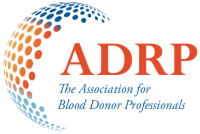Blood donation motivators and barriers reported by young, first-time whole blood donors: Examining the association of reported motivators and barriers with subsequent donation behavior and potential sex, race, and ethnic group differences.
Authors
Christopher R. France, Janis L. France, Dominic W. Ysidron, Caroline D. Martin, Louisa Duffy, Debra A. Kessler, Mark Rebosa, Shiraz Rehmani, Victoria Frye, Beth H. Shaz
Abstract
Background
A greater understanding of young, first-time donor motivators and barriers is needed to address the ongoing challenge of retaining these essential donors.
Study Design and Methods
Structured interviews conducted with 508 young, first-time whole blood donors [66.1% female; Mean Age = 19.4 (SD = 2.5) years] were coded to identify reported motivators and barriers. Reported motivators and barriers were then examined for their association with attempted donation behavior over a 14-month follow-up, and for potential sex, race, and ethnic group differences in the frequency of endorsement.
Results
Prosocial motivation (e.g., altruism) was the most commonly reported motivator and fear (e.g., fainting, needles) was the most commonly reported barrier. Donation behavior was unrelated to reported motivators, but was significantly related to four reported barriers including fear of fainting/dizziness, fear of needles/pain, having personal commitments that conflict with donating, and perceiving oneself as unsuited to donate for health reasons. Sex, racial, and ethnic differences were noted with respect to the percentages of donors reporting several donation-related motivators and barriers.
Conclusion
The present findings identify donation-related barriers that could be important targets to address in the effort to encourage new young donors and to retain these new donors for the long term. Importantly, these data also highlight the importance of considering individual differences in donor motivation as a function of sex, race, and ethnicity.
October 11, 2022
Related Resources
Engaging blood donors as advocates Social media preferences and associations with marketing
Background: Various critical medical procedures would become impossible without blood donations—saving lives in emergencies, surgeries, and chronic conditions like thalassemia. Therefore, it seems crucial to enhance donor recruitment and ensure…
Rethinking the role of older donors in a sustainable blood supply
INTRODUCTION Many countries, particularly high human development index countries, are facing the challenge of an aging population.1 For Blood Collection Agencies (BCAs) in these countries, an aging population poses two…


